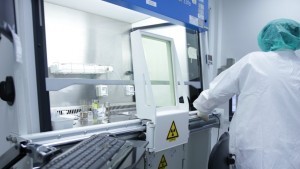Scientists are creating genetically engineered “miniature brains” which contain Neanderthal DNA, in a bid to understand how our brains differ from our closest relatives.
Over the next few months the blobs of tissue, known as brain organdies, will be grown from human stem cells genetically edited to contain “Neanderthalised” versions of a few genes.
The organoids, which are the size of lentils, are incapable of thoughts or feelings, and replicate some of the basic structures of an adult brain.
The tissue will show for the first time if there were significant differences between Neanderthal and human brain biology.
Prof Svante Pääbo, director of the genetics department at the Max Planck Institute for Evolutionary Anthropology in Leipzig, Germany said: “Neanderthals are the closest relatives to everyday humans, so if we should define ourselves as a group or a species it is really them that we should compare ourselves to.”
Mr Pääbo has led the international effort to crack the Neanderthal genome in the past, and his lab now has its eyes set on bring Neanderthal traits back to life in the lab through sophisticated gene-editing techniques.
more at express.co.uk
Ask me anything
Explore related questions





